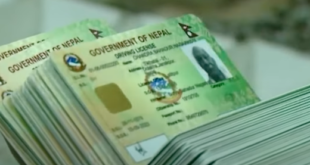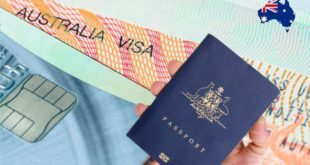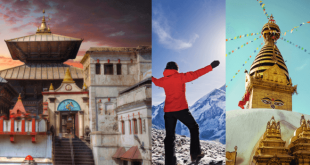Smart lockdown is a buzzing phrase in Nepal at this time. Which puzzling people, how this will affect their daily life.
As the number of Coronavirus (Omicron) cases increased in Nepal, the Government, based on the numbers, imposed a partial lockdown inside and outside the Kathmandu valley. In what it describes as smart lockdown, the Ministry of Health and Population said people who gather more than 25 people in public places are prohibited under the new guidelines. Whoever violates it will face strict punishment.
The Home Ministry has instructed local authorities of Kathmandu Valley to impose a smart lockdown without directly affecting public movement or economic activity. A Coronavirus outbreak in the valley has prompted the authorities to ban gatherings in public places with more than 25 people. COVID-19 curbs got approved following a meeting of Kathmandu, Lalitpur, and Bhaktapur district administrators in Kathmandu Valley. The number of cases in Nepal has steadily increased over the past few weeks, with three districts in the Kathmandu Valley recording the highest number.
Only one week ago, there were 1,286 new cases in Kathmandu Valley: 880 in Kathmandu, 221 in Lalitpur, and 85 in Bhaktapur, according to The Kathmandu Post.
Nepal has experienced an increase in Coronavirus cases, like many other countries. The number of COVID-19 cases is currently 9,634 across the country. There have been 11,607 deaths as a result of viral infection in Nepal. A limited number of people also has been set for gatherings, processions, and other crowded activities as part of the new orders.
The smart lockdown procedure mandates the closure of schools through January 29.
What experts opine on the ‘Smart Lockdown’
The Government has already failed to strictly enforce selective restrictions by allowing public vehicles to exceed their seating capacities and preventing restaurants from operating dine-in services.
From January 21, people must present a vaccination card to enter hotels, restaurants, movie theatres, stadiums, and board flights. However, the Government has failed to limit the number of passengers in public vehicles, ban the practice of dine-in meals in restaurants, and ban public functions; health experts doubt it will succeed in enforcing localized restrictions.
The Government got criticized for demonstrating inaction when India’s Covid-19 cases surged at record levels. Health officials have repeatedly warned against a third wave looming between Nepal and India, but the public movement remains unregulated. While the infection rate gradually rises, the Government has done nothing more than ban public and private vehicles after 8 pm last week. Many, however, have been outraged by the decision to ban vehicles after 8 pm, calling it shortsighted and impractical.
Experts criticized the Government for failing to take primary control measures against Covid-19, including tracing, testing, and treating. From the first week of August, Kathmandu Metropolitan City, citing pressure to cut costs, suspended free Covid-19 treatment services at the Naradevi Ayurvedic Hospital and Chhetrapati Free Clinic Hospitals. It comes as doctors have warned that a devastating third wave could hit the country anytime soon.
Additionally, the authorities have failed to increase antigen testing, and the kits are close to expiration. Doctors believe that expanding the antigen tests is the best way to determine how the virus spreads in society. The tests allow them to see how the virus is spreading.
Read Also: Omicron Crisis – Nepalese Travel guidelines for European travellers
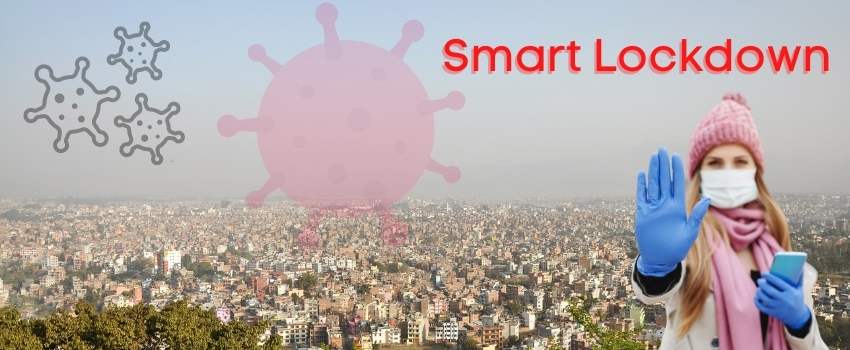
No preparation means you’re preparing to fail
No one in Nepal would have predicted that we would be in the epicentre of the Covid-19 surge fueled by the Omicron variant in early 2022, whether out of naiveté, misplaced optimism, or strong faith in the healing powers of Himalayan air and turmeric.
We underestimated the danger and were grossly underprepared for this year’s Dasain and Tihar, which resulted in thousands of deaths. Immediately following the Indian wave in November, Nepal recorded the highest number of Covid infections per capita and the worst viral transmission rates on earth. In a matter of days, Nepal’s health system is overwhelmed by the floods in India.
Were you aware of when oxygen cylinders were scarce and every ICU bed was occupied? Are you aware of the disastrous situation in rural communities where many Nepalese died without health care? Additionally, many suffered from the black market where they had to pay exorbitant prices for masks, oxygen, and even paracetamol that would have saved them.
These months were terrible and deadly, and we cannot afford to forget them. Then, we will have to repeat them if we don’t prepare for the next wave. Covid cases are increasing rapidly worldwide now that Omicron has spread like wildfire. Nepal experienced a spike in Covid cases a few months after the rest of the world.
Nepal will not be able to sustain its current case numbers for long. We risk killing thousands of Nepalis in the next few months if we repeat our mistakes of under-preparation and apathy.
As Omicron appears to have caused fewer hospitalizations than Delta did, it is essential to remember its rapid spread compared to Delta. A smaller percentage of Covid patients needing lifesaving care has no benefit since the number of infections increases exponentially.
There will still be an overabundance of medical facilities, which will result in an unnecessary loss of life. For densely populated Nepalese communities, Omicron should not be underestimated.
Preparation still needs to be done. The upcoming months are crucial for policymakers and individuals alike.
Read Also: I’ve tested positive to COVID. What should I do now?
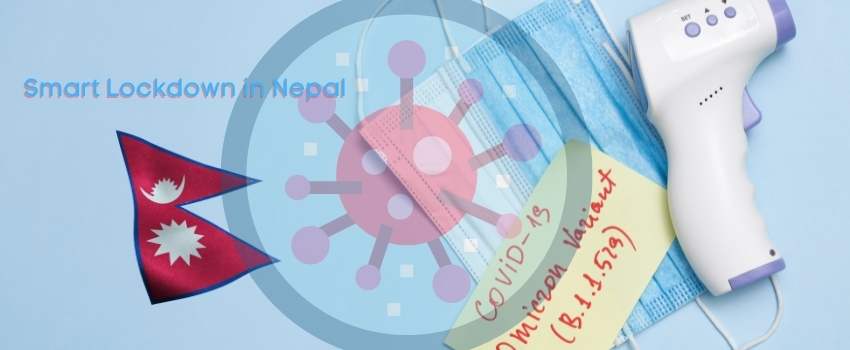
OMICRON measures that need to be taken care of by the Individuals
Individually, we are responsible for protecting our loved ones by following public health guidelines at least for a few more months. Historically, we will not know that Omicron has arrived in Nepal until the variant has become endemic in the population. However, these proactive measures may slow the spread:
- When interacting with at-risk groups, wear a mask in public places. Due to Omicron’s high contagiousness, it makes sense to double up on masks.
- Hands should never be touched to the face, and hands should be washed frequently with soap and water – at least 20 seconds.
- You should avoid public gatherings at all costs. Maintain at least a one-meter distance.
- Follow protocols and encourage elected officials to protect the community by taking proactive measures. Consider spreading awareness or providing facilities to your community, and be ready to assist when the next wave comes. Nepalis are famous for using ‘source-force’ when it comes to achieving goals – now is a great moment to use your connections and networks to encourage people in positions of influence to get ready for Omicron.
Every country and every community is for themselves in the age of Covid. Nepal learned from the Delta pandemic not to believe in international aid promises. The only thing keeping us going is each other and following strict protocols by every community member.
NepaliPage,connects Australian Nepalese Community & Australian Nepalese Business Globally
Disclaimer: NepaliPage.com (नेपालीपेज डटकम) is a Nepalese Community website aggregating Nepalese Australian affairs including Australian Nepali Community News, Migration opportunities in Australia, Nepali International Students, Nepali home and garden, Nepali mortgage and real estate tips, tricks, and services, Travel, Entertainment, Nepalese Events, blogs, interview and many more. None of our stories is tailored expert advice for your circumstance, and cannot be taken as legal, migration, or any other expert advice. By nature, all of our contents provide general information on related topics from the various verified sources. We do not offer direct employment opportunities, Australian VISA help, and Migration assistance.
 Nepali Page Nepali Community Page in Australia
Nepali Page Nepali Community Page in Australia



